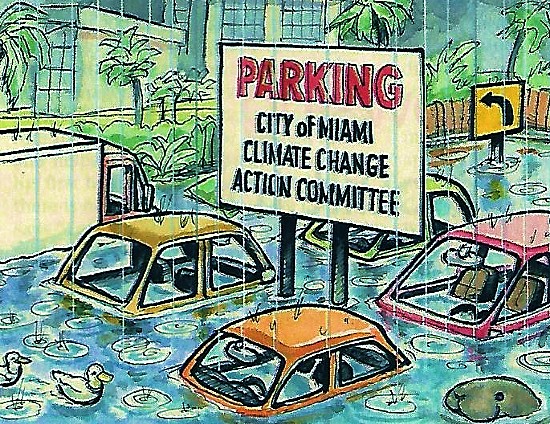“The Incapable State” was the title of an opinion piece in the June 11, 2022 edition of The Economist. It described how climate change threatened the City of Miami, Florida, a “city loved by the mega-rich” with “a strong tax base and an economy dependent on threatened real estate.”
In many ways, Miami is an analogy for our global response to climate change. In this case, Miami equals the Global North. Like the Global North, it has the means and money to mitigate and adapt to climate change to benefit its neighbourhoods and South Florida. So is the case of the Global North which also has the means and money to do the same for both hemispheres of our planet.
But Miami drags its feet with its richest citizens practicing NIMBYism when it comes to fighting climate change. So too does the Global North as it continues to dishonour its commitment made in Paris in 2015 to fund US $100 billion annually to countries in the Global South, the ones most impacted by climate change.
The Economist describes one particular scenario involving homes in one of Miami’s more affluent neighbourhoods. This area is not hooked up to the city sewer system. Instead, the houses use septic systems and they are vulnerable to climate change consequences which include rising sea levels and water tables, and sunshine day flooding. When this affluent neighbourhood was given an offer by the city of US $2.75 million in subsidies to remove septic systems and link to the city’s sewer system, the answer was a resounding“No.” Even when presented with evidence that showed leaking septic tanks were causing fecal pollution every time it rained heavily or during sunshine day floods. The streets ran with water containing fecal contaminants.
But the NIMBYs in the neighbourhood presented “alternative facts” arguing the higher fecal stormwater levels were caused by manatees defecating in the local canals. Considering manatees are an endangered population in Southern Florida, that would have been quite a trick. The result is this neighbourhood continues to rely on septic systems and fills Miami streets during sunshine day floods, hurricanes, and extreme rainfall events with contaminated runoff.
I have always wondered just how blind those who administer South Florida can be, and how Florida homeowners seem reluctant to take responsibility for their environment. In the previous winter visits my family took in this area, “the incapable state” has always shown its true colours. I remember witnessing a new Fort Lauderdale seawall project to protect the shoreline and infrastructure become easily inundated by an Atlantic Ocean storm. I wrote back then in 2015 about this maladaptation. I also wrote about how most South Floridians didn’t understand about where their freshwater came from and the threat by sea level rise and saltwater intrusion into the freshwater source, underlying aquifer.
Since 2015 it appears nothing has changed whether it is decision-making at the state, city, or county level. Florida’s leaders and decision-makers continue to be populated by climate change deniers or those who poo-pooh future predictions. Miami, states “The Incapable State” article, has no answers acceptable to its citizens.
Will a seawall help? Bring over Dutch engineers. But the designs that have saved The Netherlands from floods aren’t suitable for the physical geography of South Florida. Instead of stopping floods, the Dutch designs would lead to increased flooding from rising groundwater.
Other solutions that have been explored or issued as policy continue to be “a medley of partial fixes” including the septic systems removal one previously described and rejected. Florida and Miami have toyed with the building code. The state has published a climate action plan that is underwhelming. What the city and Florida haven’t done is look at the future habitability of Miami neighbourhoods. What the city and Florida haven’t done is consider what the overall cost would be of moving threatened communities to higher ground. Aggressive steps to mitigate climate change are just not on the radar. Instead, the city is very much like the state, the country, and a good portion of the rest of the planet. And why is that? Because of who governs us. We are led by people incapable of making tough decisions like the ones required to mitigate and adapt to climate change. And without those tough decisions, The Economist article concludes that we will be paying US $2 trillion per year by 2100 to correct our collective mistake.
This week the same message is coming from those gathered at Sharm-el-Sheikh for COP27. So many Global North leaders indicated prior to the meeting that they were otherwise gauged with more important issues. I understand why they would use this excuse. It’s because they can’t handle the truth. They can’t commit to tough decisions and spend the money needed to reduce the worst that climate change will throw at us as the rest of the century unfolds.









